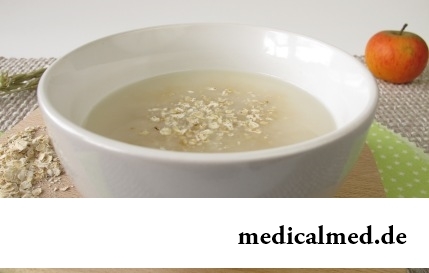





Melitor
Application instruction:
Melitor – drug with antidepressive action.
Form of release and structure
Melitor release in the form of tablets, film coated: oblong, orange-yellow, from blue color a print of a logo of firm on one party (on 14 pieces in blisters, on 1, 2 or 4 blisters in a cardboard pack).
Is a part of 1 tablet:
- Active agent: агомелатин – 25 mg;
- Auxiliary components: monohydrate of lactose, corn starch, povidone, sodium starch glycollate (type A), stearic acid, magnesium stearate, anhydrous colloid silicon dioxide;
- Film cover: глицерол, gipromelloza, iron oxide yellow (E172), macrogoal, magnesium stearate, titanium dioxide (E171);
- Ink: propylene glycol, shellac, indigotinovy (E132) aluminum varnish.
Indications to use
Melitor appoint for treatment of big depressive episodes at adults.
Contraindications
Absolute:
- Functional disturbances of a liver (active diseases of a liver or cirrhosis);
- Rare hereditary diseases: intolerance of a galactose, deficit of lapp lactase or disturbance of absorption of glucose galactose;
- Concomitant use with powerful CYP1A2 inhibitors (fluvoksaminy, ciprofloxacin);
- Hypersensitivity to drug components.
Relative (in connection with limited clinical data it is necessary to be careful during Melitor's reception):
- Moderate or heavy functional disturbances of kidneys;
- Advanced age;
- Pregnancy.
At Melitor's use during a lactation breastfeeding is recommended to be interrupted.
Children are not recommended to carry out therapy (it is connected with lack of data on efficiency and safety of use of drug for this category of patients).
Route of administration and dosage
Melitor accept inside, irrespective of meal, before going to bed.
The recommended single dose makes 25 mg (1 tablet), frequency rate of reception – once a day.
If in 14 days of use of drug the insufficient effect is observed, the single dose can be increased twice.
During therapy it is necessary to control function of a liver: at the beginning of use, then periodically – at the end of an acute phase (approximately in 6 weeks), at the end of a phase of a maintenance therapy (in 12 and 24 weeks), further – according to clinical indications.
Treatment needs to be continued throughout sufficient time, but it is not less than 6 months to be convinced that disease symptoms completely disappeared.
The gradual dose decline at the end of therapy is not required.
Side effects
The side reactions arising during therapy usually have easy or moderate temper and develop for the first 2 weeks of administration of drug. Development of nausea and dizziness is most often noted (as a rule, these disturbances take place independently and cancellations of therapy do not demand).
In certain cases it is difficult to distinguish symptoms of a disease from the side effects connected with administration of drug.
During Melitor's reception the following side effects can develop (≥1/10 – very often; ≥1/100, <1/10 – часто; ≥1/1000, <1/100 – нечасто; ≥1/10 000, <1/1000 – редко; <1/10 000 – очень редко; при невозможности провести оценку на основании имеющихся данных – с неизвестной частотой):
- Nervous system: often – migraine, sleeplessness, drowsiness, a headache, dizziness; infrequently – paresthesia;
- Alimentary system: often – nausea, a lock, diarrhea, pains in an upper part of a stomach;
- Musculoskeletal system: often – a dorsodynia;
- Liver and gall bladder: often – increase in activity of aspartate aminotransferase and/or alaninaminotranspherase; seldom – hepatitis, increase in activity gamma глутамилтрансферазы;
- Integuments and hypodermic fabric: often – a hyperhidrosis; infrequently – an itch, eczema; seldom – erythematic rashes;
- Organ of sight: infrequently – disturbances of clearness of sight;
- Mentality: often – alarm; infrequently – dreadful dreams, agitation and symptoms (concern, irritability) relating to it, aggression, unusual dreams; seldom – a mania and/or a hypomania (can be manifestations of a basic disease), hallucinations; with an unknown frequency – suicide thoughts or behavior;
- Others: often – fatigue.
Special instructions
It is not recommended to carry out therapy of big depressive episodes at elderly patients with dementia as safety and Melitor's efficiency at such patients is not established.
In the presence in the anamnesis of a mania or hypomania during treatment it is necessary to be careful. At development of maniacal symptoms therapy should be interrupted.
The depression can be followed by the increased risk of emergence of suicide thoughts, drawings to itself injuries and a suicide (the events connected with a suicide). The risk of emergence of these symptoms remains until approach of significant remission. In certain cases improvement does not occur in the first a little and more weeks of therapy therefore before improvement behind a condition of the patient it is necessary to conduct careful observation. As the general clinical practice shows, at early stages of recovery the risk of development of a suicide can increase.
Patients with existence in the anamnesis of the events connected with a suicide, and also patients with the significant level of suicide thoughts prior to treatment are more subject to risk of suicide thoughts or attempts of a suicide during Melitor's reception. In this regard behind them it is necessary to conduct careful observation, in particular at early stages of treatment and at changes of a dose.
Simultaneous use with powerful CYP1A2 inhibitors contraindicated, at appointment (propranolol, грепафлоксацин, эноксацин) it is necessary to be careful with moderate CYP1A2 inhibitors as it can lead to increase in exposure of an agomelatin.
At conduct of clinical trials increase in content of transaminases in blood serum was noted, especially at Melitor's use in a daily dose of 50 mg (usually after the end of therapy these values are returned to norm). At all patients it is necessary to control function of a liver. At the increased content of transaminases in blood serum analyses of function of a liver should be carried out repeatedly within 48 hours. At increase in content of transaminases in blood serum by 3 times in comparison with the upper bound of norm therapy should be stopped.
If before Melitor's reception at patients the level of transaminases is increased (exceeding of the upper bound of norm less than by 3 times), therapy should be carried out with care.
In the presence of the symptoms indicating abnormal liver functions it is necessary to carry out analyses on the basis of which it is possible to make the decision on expediency of performing treatment. When developing jaundice Melitor it is necessary to cancel.
Therapy needs to be carried out with care with risk factors of injury of a liver, including obesity, not alcoholic fatty alcoholic disease of a liver, considerable consumption of alcohol or a concomitant use with the drugs having a hepatotoxic action.
Simultaneous use with ethanol is not recommended.
During Melitor's reception it is necessary to manage motor transport and other mechanisms with care.
Medicinal interaction
At simultaneous use of Melitor with some medicines there can be following effects:
- The drugs interacting with isoenzymes of CYP1A2 and CYP2C9/19: reduction or increase in bioavailability of an agomelatin;
- Fluvoksamin, ciprofloxacin: the expressed inhibiting effect on metabolism of an agomelatin (the combination is contraindicated);
- Estrogen: increase in exposure of an agomelatin (it is necessary to be careful).
Terms and storage conditions
To store in the place, unavailable to children, at a temperature up to 30 °C.
Period of validity – 3 years.
Scientists from the Oxford university conducted a number of researches during which they came to a conclusion that vegetarianism can be harmful to a human brain as leads to decrease in its weight. Therefore scientists recommend not to exclude completely from the diet fish and meat.

Weakness of an ankle joint – very widespread problem. Its existence is demonstrated by tendency to a podvorachivaniye of legs п...
Section: Articles about health
The main role in development of a peptic ulcer of a stomach and duodenum the bacterium Helikobakter plays pilor. Activity and the strengthened reproduction of this microorganism lead to weakening of protection of mucous membranes and their erosive damage. Manifestations not...
Section: Articles about health
The phenomenon of improvement of a condition of the patients at administration of drugs who are not containing active agents, so-called effect of placebo is known long ago. At the end of the 18th century the American doctor Perkins began to treat people the "miracle" sticks made of alloy of steel and brass. Was for several minutes to press such subject enough to a sore point that it became much easier for the patient. Having suspected Perkins of charlatanism, his colleagues tried to repeat "miracle" by means of sticks, steles...
Section: Articles about health
For anybody not a secret that our country is one of the most "drinking" in the world. At clear understanding of that the use of strong...
Section: Articles about health
80% of women at least once to lives complained of discomfortable feelings to breasts, consolidations and nagrubaniye. These are mastopathy symptoms. The mastopathy is characterized by change of a ratio between ferruterous and connective tissue tissues of mammary glands. It can bring...
Section: Articles about health
For most of the working people the problem of having a snack is particularly acute enough. Sooner or later there is a question: what can be eaten quickly between a breakfast and a lunch or a lunch and leaving from service so that to receive necessary power feed, but not to overload an organism with harmful components or excess calories? We bring to your attention the list of products which quite conform to these requirements....
Section: Articles about health
Bees – really unique beings. Practically all products of their life activity are used by the person. Since the most ancient times from...
Section: Articles about health
Many parents of children at the age of 2-4 years face excessively whimsical behavior of the child. The kid exhausts constant crying and whims not only the parents, but also himself. In what the reasons of children's whims. And how to fight with them?...
Section: Slideshow
According to data of World Health Organization, the cataract is diagnosed almost for 7% of the population of Earth. The statistics of incidence is considered not full as at an initial stage the illness, as a rule, does not cause to the person of special inconveniences, and many diseased sees doctors not at once. The cataract is not only one of the most widespread ophthalmologic illnesses, but also the reason of a half of cases of loss of sight....
Section: Articles about health
Today about 30 diseases, sexually transmitted are known. To wide circulation of these illnesses extremely with...
Section: Articles about health
Obesity is called a disease of 21 centuries, for the last 100 years the number of the people suffering from excess body weight considerably increased. Statistically, on Earth already about 1,5 billion corpulent people, and 500 million from them have extreme degree of completeness, are negative...
Section: Articles about health
All diseases from nerves – in this joke a big element of truth, are said by doctors. Constant stresses lead to decrease in protective forces of an organism, and it becomes vulnerable for a set of diseases. It is wrong to think that the stress is a problem of the present. Life of people and hundred, and one thousand years ago also abounded with problems therefore need of a relaxation understood in ancient times – to some techniques more than one thousand years. The person needs knowledge of how it is possible to relax, this knowledge пригод...
Section: Articles about health
Residents of big cities quite often have a disease which is known as the syndrome of chronic fatigue (SCF) today. This illness...
Section: Articles about health
Several decades ago the basil (the district khan, реан, Reagan) was considered as a part of the Caucasian or east cuisine, but today it strongly took the place on tables of Russians. Greens of this plant possess a strong, pleasant smell and specific fresh taste, because of to...
Section: Articles about health
The words "disease" and "patient" not without reason come from one root – "pain". As a rule, symptoms of illnesses thoroughly spoil to patients life. However from this rule there are exceptions. Some diseases are shown by signs which can cause even positive emotions. It is a pity only that the majority of such illnesses are heavy and incurable....
Section: Articles about health
Statistically, at the address to doctors seven of each ten patients complain of a headache. Actually people, periodically...
Section: Articles about health
People know that thermal sources have salutary force long ago. Treatment by natural waters is one of the most ancient methods of disposal of the most different diseases. Bathtubs, souls, wrappings and inhalations, in combination with reception of water vnut...
Section: Articles about health
Radiological methods of a research are applied in medicine more than hundred years, and thanks to them millions of lives were saved. In many cases without X-ray it is impossible to make exact idea of a condition of bodies and fabrics, it is correct to make the diagnosis. Nevertheless, many myths about researches such continue to exist. Let's consider the most widespread of them....
Section: Articles about health
The trophic ulcer is not an independent disease. This heavy complication arising owing to a thermal injury (a burn...
Section: Articles about health
About influence of fasting days on an organism it is told much – both about advantages, and about shortcomings. It is considered that fasting day in the form of a short-term monodiet is useful, promoting effective removal of slags from an organism whereas irregular, it is excessive п...
Section: Articles about health
All parents are ready to what the baby often and pisat much. Since then, as the absorbing diapers strongly became current, keeping of the kid in dryness does not represent any problems. But if the grown-up kid continues to urinate in panties, parents begin to feel concern – whether it is normal, or the kid has an urine incontience? Let's try to understand what is enuresis why it arises at children and at what age it is necessary to begin it to treat....
Section: Articles about health
Deciding to get rid of an addiction, not all imagine what effects it is necessary to face. Process of refusal from ку...
Section: Articles about health
The medicine promptly develops, and the fact that else quite recently it seemed by miracle can now. We are not surprised any more to the fact that people with artificial joints and extremities can play sports, organ transplantation became a routine, and the latest cancer medicine п...
Section: Articles about health
Food with the increased content of sugar is attractive to most of people - it is scientifically confirmed fact. Business here not in intemperance or dissoluteness: the sweet food is associated since childhood with feeling of rest and safety which tests the kid when it absorbs maternal milk. Besides, getting into a human body, sugar strengthens production of "happiness hormones" which all of us so need. And still life of sweet teeth seldom happens cloudless: their too big loss...
Section: Articles about health
Water with a lemon - idle time in preparation drink which supporters of a healthy lifestyle already managed to appreciate. Upo...
Section: Articles about health
Life of the modern woman is very difficult. Opportunities to realize itself are wide: it not only education and career, but also the most various hobbies from sport before needlework. It is not less important to build private life, paying an attention maximum to children, the husband, parents, e...
Section: Articles about health
Life activity of one-celled fungi of the sort Candida, related to yeast is a proximate cause of development of candidiasis (milkwoman). Normal these microorganisms are a part of the microflora living in an oral cavity and intestines of most of people and also in a female genital tract. The pathological phenomena are observed when fungi begin to breed too violently. At the same time there is an inflammatory process affecting mucous membranes and which is shown very nepr...
Section: Articles about health
